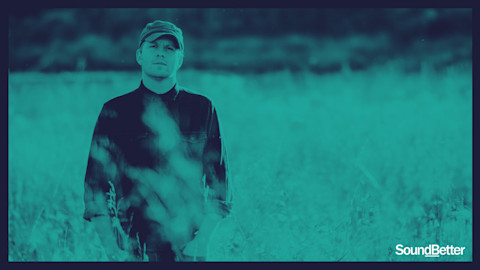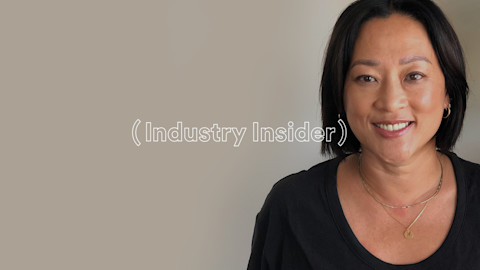This Scottish triple-threat (producer, singer, writer) shares career advice and thoughts on #MeToo.
Scottish singer-songwriter Nina Nesbitt is only 23, but she's already a music-industry lifer – signed at 17, the multi-instrumentalist has opened for the likes of Justin Bieber and Ed Sheeran, represented her homeland at a World Cup qualifying match, and collaborated with her fans on the 2016 EP Life in Colour, writing and producing songs based on five listeners' life stories.
Now independent, Nesbitt is steadily working toward the release of her next album, with singles like the skeletal yet romantic "Somebody Special" and the swirling "The Best You Had" showcasing her growth as a vocalist and songwriter. She's also been working in the studio as a gun-for-hire, co-penning "Slow Me Down" with R&B belter Jessie Ware, and burnishing her production skills.
We spoke with Nesbitt during a recent stopover in New York, where she was getting ready for a round of spring tour dates.
__How did your new single "Somebody Special" come about? __
I've had this concept for a while – when you start falling for someone, everything seems so much more exciting than it does when you're on your own. When I got back [home to spend time with] my boyfriend, we'd go to [the UK] version of Walmart, just wandering around buying sweets and pizza, and whatever we wanted to, and it would be the most exciting trip, 'cause we were together.
__You've been writing for other artists, too. __
I have a few cuts with Jessie Ware, and I have one with Jasmine Thompson. I actually write with a lot of female artists – I feel like I can get in the room and really connect with them and understand their stories. When I'm writing, I just like to get in the room and write a song and then decide what it's for. Right now, I'm quite busy on tour and doing promo stuff, so I've taken a little break, but when I'm back in the UK, I'm definitely going to write more.
__You've also started producing songs. What inspired you to do that? What was the learning curve like? __
I actually got dropped from a label and nobody was working with me – that's the real reason. I thought, "Wow. I don't want to have to rely on other people to be able to do what I love – make music and put it out." So, I was kind of like, "Fuck this, I'm just going to teach myself." I have a little home setup in my bedroom, and I just started experimenting. I found this massive sample database that I use a lot. It's an easy way for someone that maybe doesn't have the luxury of a fancy studio, or expensive equipment, to make music.
The [2017] track, "The Moments I'm Missing" – I produced 90% of that song by myself, and I wrote that in my bedroom. That was the song that got me signed again. [Producing is] actually something I like doing more as a way to create demos for other producers, but on my next album I'd like to do a lot more production myself.
How does it feel to be a female producer in the industry?
There are quite a lot of us, but we don't really talk about it that much. Or when we're in the studio, I find that a lot of the time people just expect the girl to do the toplines, or do the singing. I feel like there isn't much opportunity, or encouragement to get into producing, and I'd definitely like to try and encourage people, where I can, to give it a go.
It seems like there's often an incorrect perception that male producers are Svengalis, especially within pop. I'm glad that you're working to combat that.
100%. A lot of the time – especially with young female artists doing the pop genre, whatever "pop" is – the thought is, "Oh, yeah, but she just sings the songs. Obviously, she must have someone else writing them." Or, "She can't have done that by herself." I do think it's getting better; all the guys I work with are really supportive.
How else do you think being a woman has affected your journey through the industry?
Things happened very quickly for me, which was one bit of it. I was 17 when I started, and I was doing pop music, so I think the overall perception was, "Oh, no – she mustn't write her own songs." I've definitely had to work a lot harder. Onstage, I'll play my instruments, so people can physically see that I play, and obviously, I've written songs. I think about festival lineups as well, at the moment especially. There are so many female artists doing great music, and you look at the U.K. festival lineups, and there are three girls among 20 guys. And you're like, "Why?" There's no excuse for that, because there are so many girls making great music and building a fanbase and building a story. There's just no reason why festivals aren't half and half, at least.
What do you think young women in the music business should keep in mind as a way of combating these attitudes?
Don't be afraid to know what you want and to be assertive. The most important thing about being an artist is knowing what you want, and knowing who you are, and knowing what kinds of sounds you want to make. Going into a studio and telling a producer what you want to do – that's not being bossy or being a control freak. That's just knowing what you want. Don't be afraid to be "that person."
What do you think the industry could do? Do you see things changing?
I do think it's changing. Interviews like this, and the whole #MeToo movement, and the #TimesUp movement – it's definitely changing for the better. It's just more the internalized attitudes that people have. Guys aren't [acting in possibly sexist ways] to be, like, a dick, it's just they've grown up in a society where the women sing and the men produce. It's kind of ingrained in us. So we have to try and raise awareness of how it is for us, and try to change the way that people think and perceive female artists, especially in pop.
- Maura Johnston
Popular Stories
video
How Julia Wolf Made It




